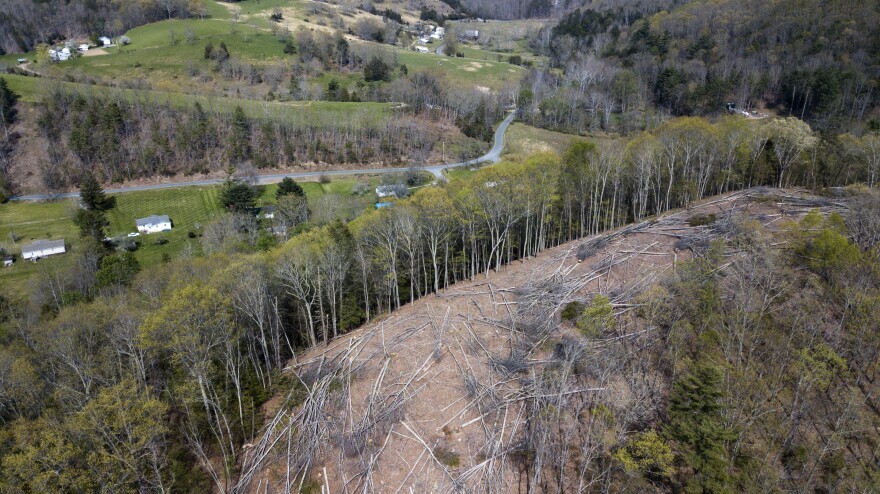The Federal Energy Regulatory Commission is accepting public comments on MVP’s latest request through the end of July.
Three of the board’s five members were appointed by Democrats, and Sligh hopes they will be receptive to those who argue against the pipeline.
In a video, builders of the Mountain Valley Pipeline share aerial shots of compressor stations and taps that are ready to go:
“With its compressor stations and interconnects complete, and more than half of the 303 mile right-of-way full restored, the Mountain Valley Pipeline is nearly complete," says the narrator. "This critical infrastructure system will play a vital role in meeting the demand for affordable, lower carbon fuel and securing out nation’s energy future.”
But critics, like David Sligh with Wild Virginia, say the most challenging parts of the project lie ahead.

“We're talking more than 400 stream crossings that they have not been allowed to do," he explains. "They have not been able to cross the national forest. They may have half a mile of pipe stretched across a field, but that's way different from running a pipe through a sensitive stream.”
Wild Virginia and other environmental groups argue another gas pipeline is not needed in this country and would come online too late to help Europe.
“We don't need it here," Sligh says. "We're moving so quickly to renewable sources, and there's no reason to think that we're ever going to get it overseas in the kind of time that would be responsive to the current situation.”
The Federal Energy Regulatory Commission is accepting public comments on MVP’s latest request until July 14. Three of the board’s five members were appointed by Democrats, and Sligh hopes they will be receptive to those who argue against the pipeline.
To share your views with FERC, go to:


